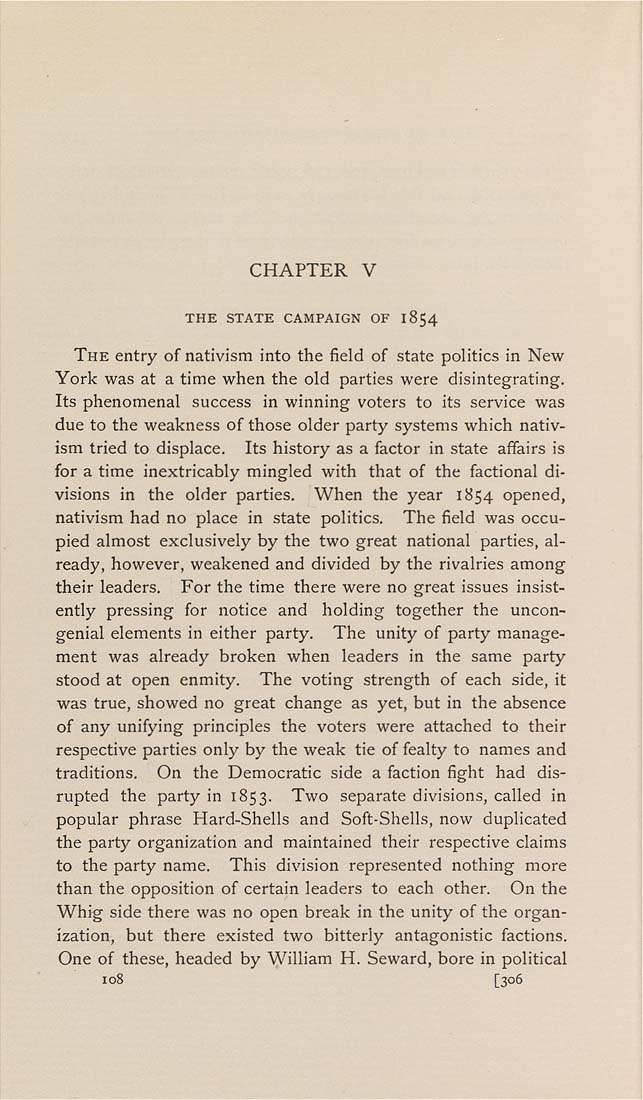CHAPTER V
THE STATE CAMPAIGN OF 1854
The entry of nativism Into the field of state politics in New
York was at a time when the old parties were disintegrating.
Its phenomenal success In winning voters to its service was
due to the weakness of those older party systems which nativ¬
ism tried to displace. Its history as a factor in state affairs is
for a time Inextricably mingled with that of the factional di¬
visions In the older parties. When the year 1854 opened,
nativism had no place in state politics. The field was occu¬
pied almost exclusively by the two great national parties, al¬
ready, however, weakened and divided by the rivalries among
their leaders. For the time there were no great Issues Insist¬
ently pressing for notice and holding together the uncon¬
genial elements In either party. The unity of party manage¬
ment was already broken when leaders in the same party
stood at open enmity. The voting strength of each side, it
was true, showed no great change as yet, but in the absence
of any unifying principles the voters were attached to their
respective parties only by the weak tie of fealty to names and
traditions. On the Democratic side a faction fight had dis¬
rupted the party in 1853. Two separate divisions, called in
popular phrase Hard-Shells and Soft-Shells, now duplicated
the party organization and maintained their respective claims
to the party name. This division represented nothing more
than the opposition of certain leaders to each other. On the
Whig side there was no open break In the unity of the organ¬
ization, but there existed two bitterly antagonistic factions.
One of these, headed by William H. Seward, bore In political
108 [306
|








